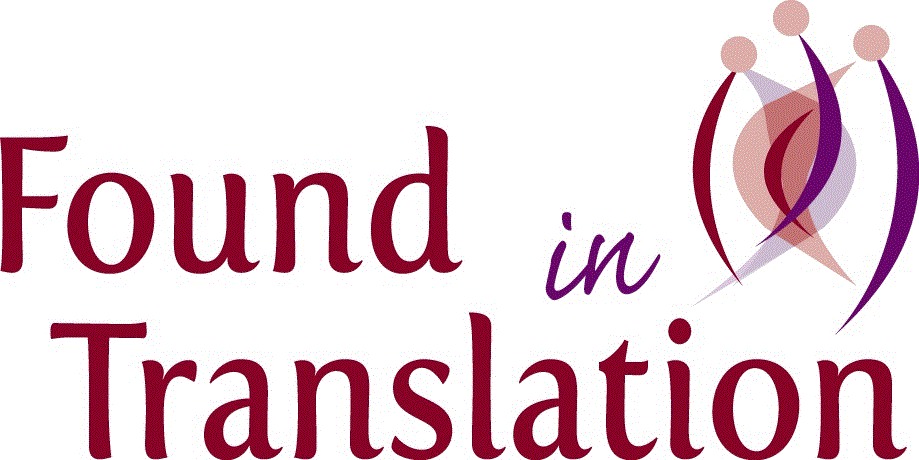Found in Translation representatives present on Fair Working Conditions for Interpreters at Paving the Way Conference
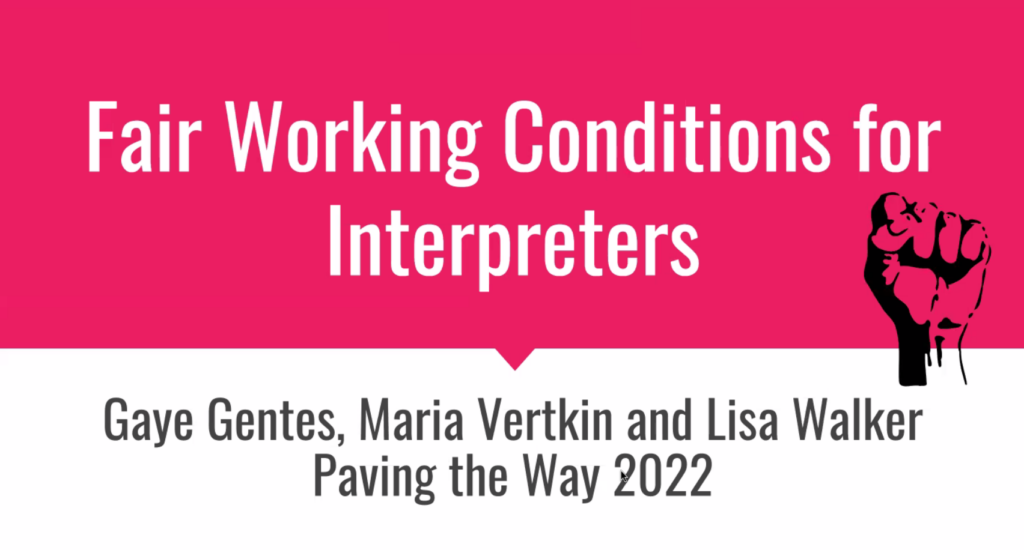
On June 4th, Found in Translation board members Gaye Gentes and Lisa Walker, along with Executive Director Maria Vertkin, presented a session on fair working conditions for interpreters at the annual Paving the Way to Healthcare Access conference. The presentation was facilitated by Bindiya Jha, Found in Translation’s Program Director for Medical Interpreter Training as well as a member of the Paving the Way Conference team.
This conference, sponsored by UMASS Chan Medical School’s MassAHEC Network, is designed for medical interpreters and those who work with medical interpreters to connect and explore industry-specific topics. While typically held in-person, this event has been virtual for the past couple years. Every year, a strong contingent of Found in Translation alumnae attend together to network and advance their skills. 2022 was no different, with ~10 attending the 2-day event.
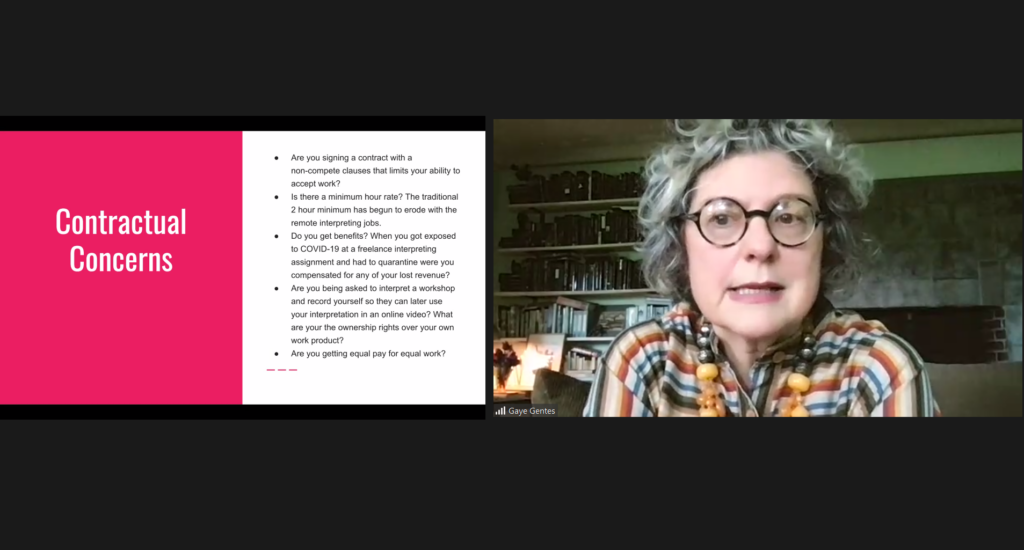
In their presentation “Fair Working Conditions for Interpreters,” Gaye, Maria and Lisa discussed the need for industry consensus and standards for fair labor conditions for interpreters on a host of issues, from working time to remuneration, as well as the physical conditions and mental demands that exist in the workplace. They shared stories of interpreters doing remote interpreting in basement ‘sweat shop’ conditions, not being issued protective gear and working with one-hour minimums and prohibitive non-compete clauses – all examples of practices that diminish and marginalize the interpreting profession. Their presentation also covered changes brought on by remote interpreting – including the outsourcing of in-person interpreting jobs to video-remote interpreters at off-site call centers charging cheaper rates, a phenomenon that we are already seeing in Massachusetts.
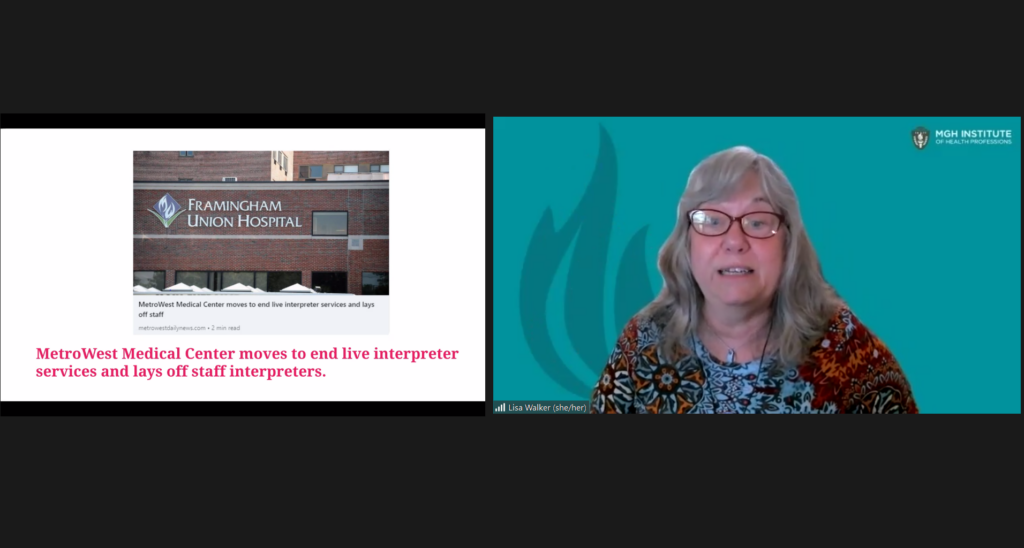
“A video screen can’t follow you around the hospital, or see if the doctors are in the corner of the room whispering something you should hear.”
Lisa Walker
Maria highlighted how the common practice of classifying interpreters as contractors (and not employees) prevents them from accessing additional compensation, benefits, and job stability. She cited that due to this and other factors, over time interpreter wages have not risen alongside minimum wage. If they had, interpreters would be earning close to $45/hr on average. Far above the current rates of ~$27/hr.
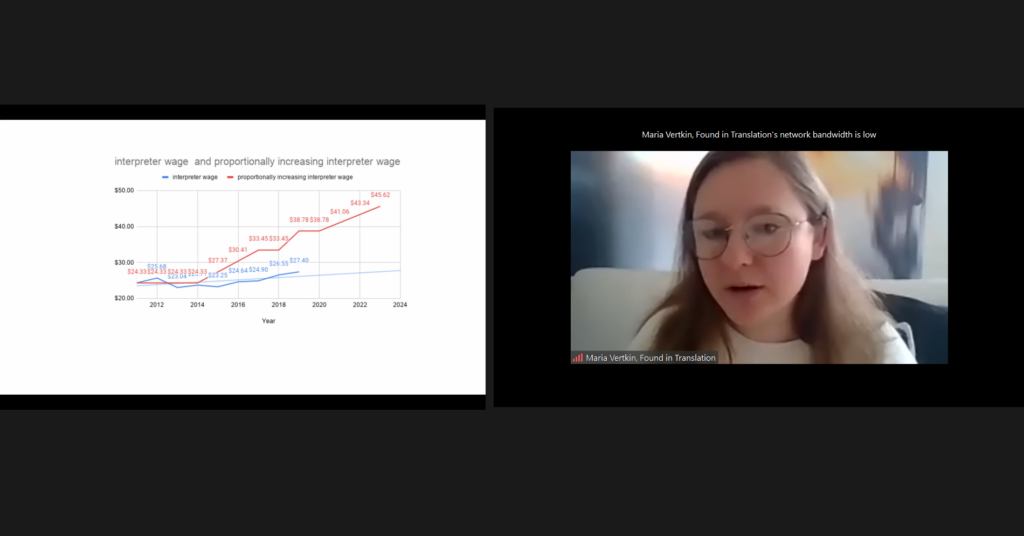
Discussion amongst the 30+ attendees and presenters (including several Found in Translation alumnae!) produced questions, opportunities and ideas for solutions. Most notably, working interpreters expressed an interest in mobilizing through the creation of associations at the state level and beyond to put pressure on institutions to improve policies.
“I work at a hospital in Boston, and they don’t see interpreters as ‘income generating’. However, there are thousands of patients who would not come if there were no interpreters!”
– Attendee comment in the chat
When asked how medical interpreters can individually advocate for themselves, Lisa Walker reiterated the high value that interpreters bring to healthcare services, saying,
“You are not just the patients’ interpreter – you are there for the doctors, and all the other hospital staff. You are everyone’s interpreter…While potential harm to the patient and wanting to provide full access to care should be enough to make folks understand the importance of interpreters, sometimes you need to point out that if they don’t have professional interpreting services they are putting themselves and their institution at risk for a malpractice suit due to medical errors, missed or late diagnoses etc…Your value in preventing lawsuits and making sure your institution is meeting healthcare standards is HUGE.”
In the coming years, Found in Translation will continue to mobilize our hundreds of alumnae, and the broader interpreter community, to protect the profession, so that it remains a sustainable, rewarding, living-wage profession for decades to come.
